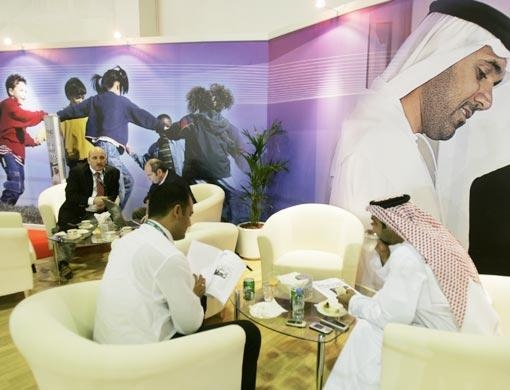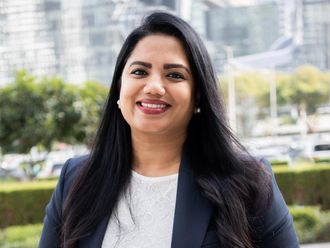
“Leadership is a combination of thought and wit. Leadership needs refinement. Leadership needs experience. Leadership needs practice and encounters.”
Just a few of the words uttered by His Highness Shaikh Mohammad Bin Rashid Al Maktoum, Vice-President and Prime Minister of the UAE and Ruler of Dubai, in his ‘Dialogue Session’ to the thousands of spectators assembled in Dubai for The Government Summit 2014.
In what was an incredibly impassioned display of patriotism, benevolence and leadership, Shaikh Mohammad delivered a message that was characteristically optimistic and illustrated a resolute commitment to excellence that has become to symbolise both him as an individual and the country from which he hails.
The three-day summit successfully held the gaze of millions of interested onlookers — all laser focused on the emirate to see for themselves the ground-breaking innovation destined to change the face of government service delivery as we know it.
Once again, the UAE shouldered the immense level of expectation in the build-up to an event with a global reach and duly met the challenge head on with a truly impeccable offering.
Heightened in some part by the direct involvement of so many members of the UAE leaders and the sheer caliber of international speakers taking to the stage, the cutting-edge insight that materialised on the conference floor will transcend borders.
In fact, the ideas presented have already gone some way to providing a visionary blueprint for how excellence can be achieved in both the public and private sectors.
Take the role of the ICT sector as an example and the innovation on show in ‘The Museum of Future Government Services’. Technological innovation and the process of pushing its capabilities to near breaking point was a consistent theme running throughout the summit and the messaging emerging from it. Harnessing the power of ICT for the greater good of humanity is no new ideology; however, the impetus placed on doing such by the UAE Government is matched by very few.
The UAE m-Government initiative, launched in 2012, is a prime example and as the nation’s ICT regulator, the Telecommunications Regulatory Authority (TRA) has had a hugely significant role to play in this mission of national importance. The Best m-Government Service Award culminated on the final day of the summit and with the technical support supplied by the Authority, the quality of the winners, and the submissions, was astounding and evidenced willingness of government administrations to take this idea and run with it for the benefit of those to whom they serve.
The UAE itself has long played host to events of global significance and collectively, events and exhibitions such as this supply a healthy contribution to the economy, 5 per cent in the case of Dubai. The UAE then is well-accustomed to adjusting when the dust settles as a summit’s curtains fall. Yet one can’t help think that in this case, the landscape since The Government Summit 2014 is slightly different.
Quite simply, the insight and intelligence shared over the event’s three days is applicable to all and although some may be taken back by the impressive event roster, the innovation on show and the international attention the event commanded, those closer to proceedings, are not. This is precisely because those on the ground recognise the intrinsic shift in responsibility that has taken place and the UAE’s propulsion to the very front of line where best practice is concerned.
Continually recognised as occupying a position at the forefront of ICT development and leading investigative pursuits into how to better serve the population, the UAE has further elevated itself as a genuine thought leader in government service delivery.
The international attention generated by the summit was not simply an offshoot of the media’s fascination with the event guest list but rather as a result of the UAE initiating the discussion and taking the initiative. The event stressed the need to drive levels of government efficiency and efficacy upwards, but critically, demonstrated how this can be achieved in practice.
In essence, through its commitment to harnessing the power of ICT and its refusal to accept anything short of perfection, the UAE has voluntarily accepted the role of leading from the front and mapping out a successful road map to excellence.
With this role comes great responsibility as the ability to set benchmarks is no easy feat. Again, this is nothing new to the UAE, its long association with the International Telecommunication Union (ITU) and the recent announcement to host one of its most critical events, the World Telecommunication Development Conference 2014 (WTDC) in Dubai in March, are both testament to this reality.
The leadership statement referenced in the beginning of this entry is certainly applicable in a local setting given His Highness’ immediate audience of UAE Government officials seated before him. Nevertheless, the impact generated by The Government Summit 2014 indicates to us all that those a lot further afield are too looking in this direction for such leadership.
Mohammad Nasser Al Ghanim is the director-general of Telecommunications Regulatory Authority, UAE.











